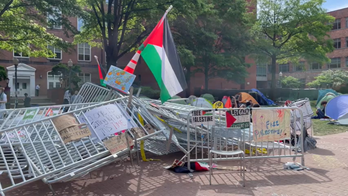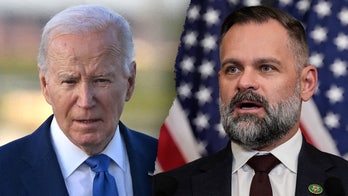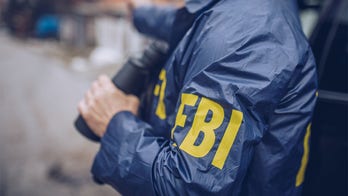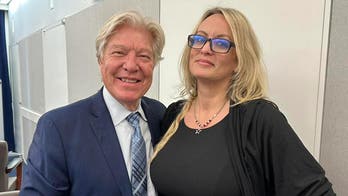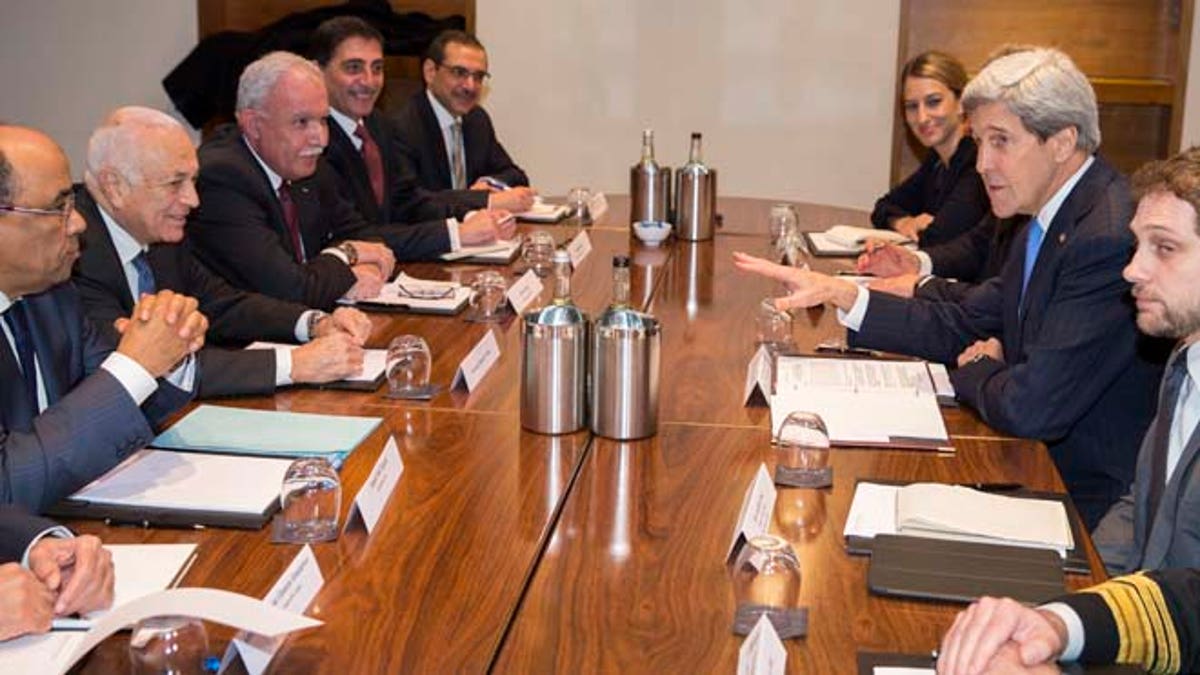
US Secretary of State John Kerry, second right, meets with Arab League secretary general Nabil El-Arabi, second from left, on Tuesday, Dec. 16, 2014, in London. (AP)
A showdown is brewing at the United Nations over a push by Palestinian officials and their allies to formally demand Israel withdraw from the West Bank and East Jerusalem within two years, leaving the Obama administration scrambling to stake out its position and ease tensions.
Palestinian officials originally said their resolution would be submitted for a possible vote Wednesday. But with the U.S. likely to veto, that vote may be postponed.
Secretary of State John Kerry on Tuesday urged against anything that interferes or "might be perceived as interfering" in Israeli elections planned for March. The priorities, he said, should be halting growing Israeli-Palestinian violence and creating conditions for an eventual resumption in peace talks.
"We all know the risk of escalation. It's constant and it's real. And that is why it is imperative to lower the temperature, end the tension, so that we have an opportunity to find a path that Israelis and Palestinians both want so desperately," Kerry said.
Kerry wouldn't categorize America's position on suggestions for the U.N. Security Council to set a framework for negotiations, which Israel fiercely opposes. "Right now we're trying to have a constructive conversation with everybody," Kerry told reporters in London, the last stop on a three-nation European trip devoted to Mideast diplomacy.
"In the end, though, this isn't up to the international community or others," Kerry said. "This has to be decided by the parties."
Kerry's meetings Monday included chief Palestinian negotiator Saeb Erekat and Arab League chief Nabil Elaraby. He met Monday in Rome with Israeli Prime Minister Benjamin Netanyahu, who took a hard line against Palestinian and French proposals for U.N.-mandated parameters and timelines for a two-state solution, and then in Paris with the foreign ministers of Britain, France and Germany.
For the Obama administration, this is dicey territory. The administration recently tamped down speculation that the U.S. might consider sanctions on Israel, but it has made no secret of its objections to certain settlement expansions in territory the Palestinians want for a future state.
The most hard-line, pro-Palestinian U.N. resolution being drafted comes from Jordan, on behalf of the Palestinians. It would demand a full Israeli withdrawal from the West Bank within two years and full recognition of Palestine as a state, with no talk of land swaps or security measures.
But the U.S. and France also have drafted versions of a Security Council resolution, though they have not been submitted.
Council diplomats, who asked to remain anonymous, told Fox News that the French draft of the resolution is less hostile toward Israel than the one being put forward by Jordan, but parallels concepts in that text -- most notably calls for an Israeli withdrawal by a determined deadline. The U.S. Mission is not disclosing details of its draft, but its very existence signals the Obama administration may feel a U.N. resolution of some kind is necessary.
France’s resolution reportedly speaks of the 1967 Mideast borders as the basis for dividing the land, which President Obama has publicly backed, but it doesn't include key Israeli -- and U.S. -- conditions such as Palestinian recognition of Israel as a Jewish state.
In Paris on Tuesday, French Foreign Minister Laurent Fabius made his case to Elaraby, Egyptian and Palestinian ministers, and former Israeli President Shimon Peres.
Fabius said "it's high time" to resume peace talks. But Peres said a Palestinian state would be better reached "through an agreement than through an imposition."
Support for France even within Europe is uncertain, despite mounting pressure for legislators across the continent to hold votes recognizing a Palestinian state. Countries are divided over the idea of setting a 2016 deadline, with Germany particularly reluctant, diplomats said.
Kerry cited several examples of the downward security trend in Israel and the West Bank: Israelis stabbed while buying groceries, axed to death while praying or subjected to acid attack, as well as the recent loss of a senior Palestinian official during protests, the burning of a mosque near Ramallah and so-called "price tag" attacks by Jewish extremists.
"We want to find the most constructive way of doing something that therefore will not have unintended consequences, that also stems the violence," Kerry said.
"It's a particular sensitive moment because we understand the frustrations of Palestinians," he added. "They don't see another course at this moment."
The key, Kerry said, is to "try to find whether or not there are other options, other ways, other courses ... to respect the process that Israelis are about to undergo."
Fox News’ Jonathan Wachtel and The Associated Press contributed to this report.

